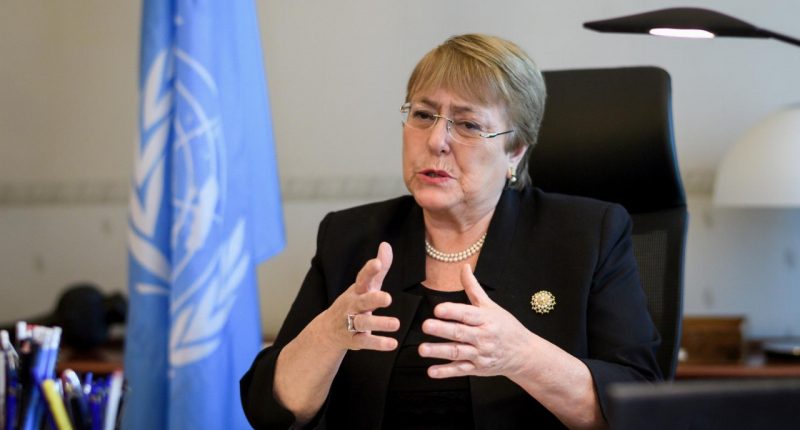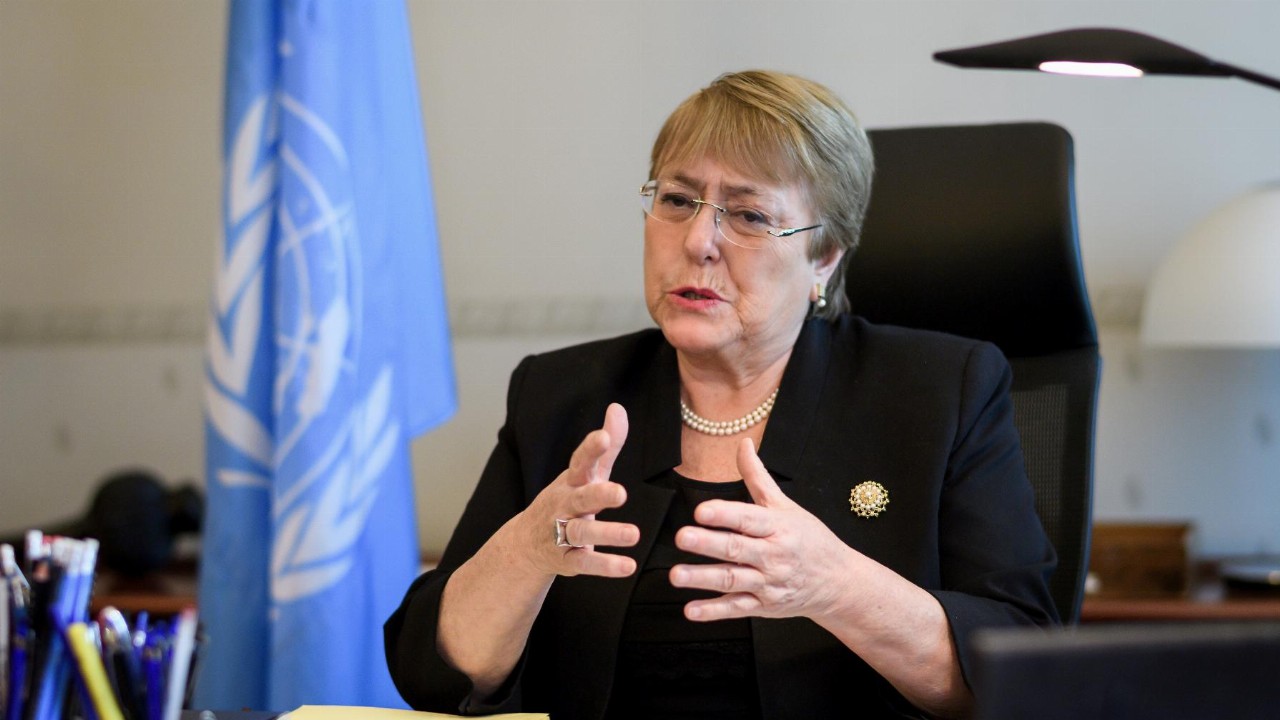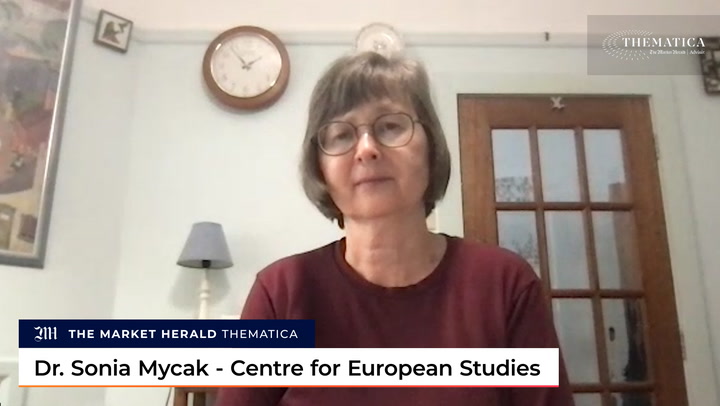- More than 40 countries call for China to allow the United Nations human rights chief immediate access to Xinjiang
- The statement was read out to the UN Human Rights Council by Canadian Ambassador Leslie Norton
- High Commissioner Michelle Bachelet told the council on Monday that she hoped to agree on terms for a visit this year
- Bachelet’s office has been negotiating access since September 2018
- Beijing rejected the statement, calling it interference driven by “political motives”
More than 40 countries urged China on Tuesday to allow the United Nations human rights chief immediate access to Xinjiang, citing “credible reports” that a million people have been detained there.
The joint statement was read out to the UN Human Rights Council by Canadian Ambassador Leslie Norton on behalf of countries including Australia, Britain, France, Germany, Japan and the United States.
Beijing continues to deny allegations that China has abused Uyghur Muslims, saying the camps are vocational training facilities designed to combat religious extremism.
“Credible reports indicate that over a million people have been arbitrarily detained in Xinjiang and that there is widespread surveillance disproportionately targeting Uyghurs and members of other minorities and restrictions on fundamental freedoms and Uyghur culture,” the statement said.
“We urge China to allow immediate, meaningful and unfettered access to Xinjiang for independent observers, including the High Commissioner,” it added, referring to Michelle Bachelet.
Bachelet told the council on Monday that she hoped to agree on terms for a visit this year. Her office has been negotiating access since September 2018.
Jiang Yingfeng, one of China’s senior diplomats, rejected the statement, calling it interference driven by “political motives.”
“We welcome the visit by the High Commissioner to China, to Xinjiang,” he told the council.
“This visit is for promoting exchanges and cooperation rather than an investigation based on so-called presumption of guilt.”
The Canadian-led statement cited reports of torture, forced sterilisation, sexual violence and forced separation of children.
Earlier this year, the BBC published a report on Xinjiang that included a rare testimony from a former prison guard as well as first-hand accounts from several now-released detainees.
Tursunay Ziawudun, a Uyghur woman who fled to Kazakhstan before moving to the U.S., spent nine months in detention. She said she was tortured and raped on three occasions, each time by two or three men.
“They had an electric stick, I didn’t know what it was, and it was pushed inside my genital tract, torturing me with an electric shock,” she said.
Another, Sayragul Sauytbay, who worked as a Chinese language teacher at one of the camps, described one incident where a young girl of only 20 or 21 was brought before roughly 100 other detainees to make a forced confession.
“After that, in front of everyone, the police took turns to rape her,” she recounted.








